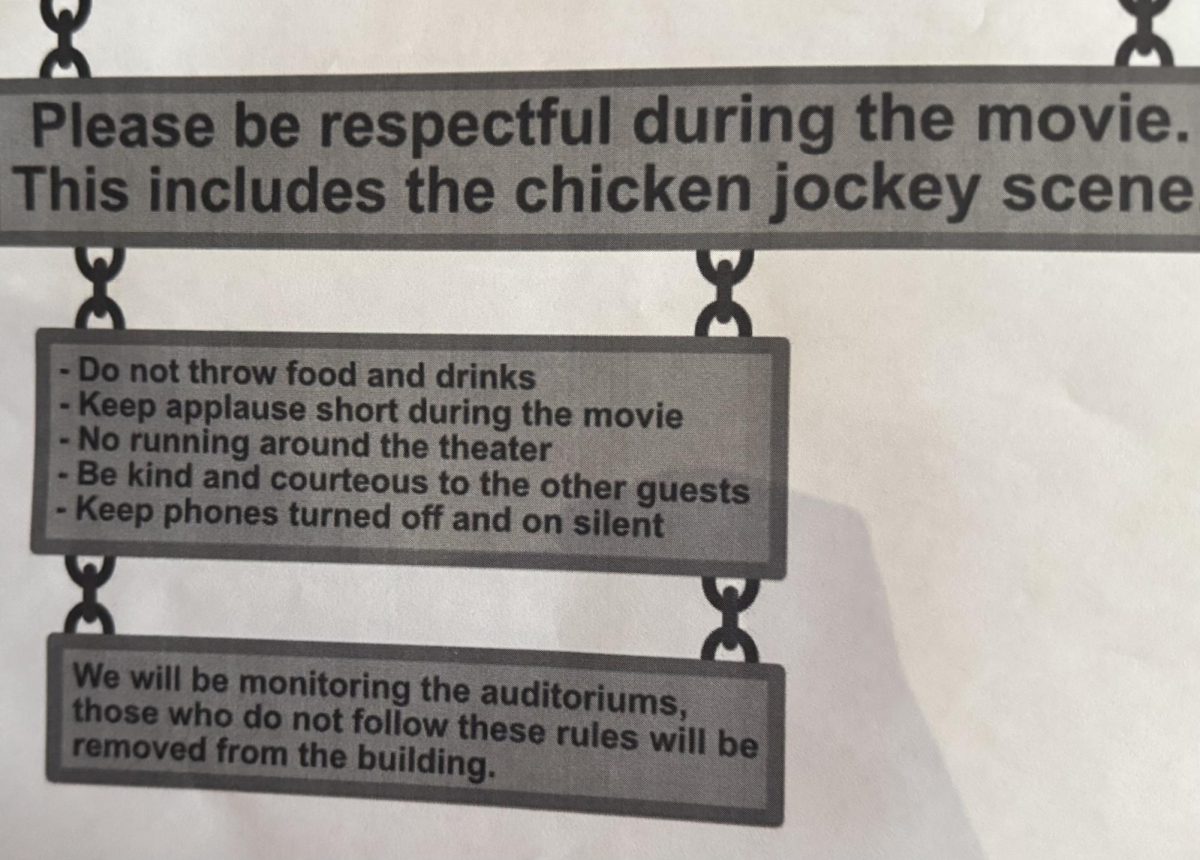A couple of weeks will mark one year since I hung up my hat as President of the Macalester College Student Government (MCSG) during a particularly difficult, yet dare I say successful, period of student activism at Macalester. While I have stayed engaged this year, largely through my role as Student Liaison to the Board of Trustees, the past year has also offered me a chance to reflect on my time in the model of shared governance at Mac and observe campus affairs from a slightly more removed perspective.
The intention of this piece is not to comprehensively evaluate student advocacy and governance at Macalester. In fact, as their predecessor, I choose not to comment on the work or initiatives of MCSG this year. Instead, I argue for a more organized and therefore more sustainable model of student governance and activism. In order to advocate for change, students ought to use established and proven bodies and mechanisms within Macalester’s shared governance model, and ought not underestimate the power of an email.
The first thing that I ever changed at Macalester was the coffee station in Cafe Mac. During orientation for international students, I noticed that the coffee was only being kept hot for breakfast and that both lunch and dinner did not have hot coffee available. I went online and found an email address to which I could send feedback, and within a day, the incredible team at Bon Appetit ensured that we had hot coffee throughout the day. Believe it or not, my method of advocacy on Mac’s campus has largely remained unchanged from this very early act of (self-) advocacy.
The majority of my advocacy has been through MCSG. While MCSG is the central organization of student voice and power, students can utilize many other bodies and mechanisms within the shared governance structure to advocate for change, including campus committees, advisory groups, focus groups and organized meetings with campus leaders.
These bodies and mechanisms generally involve processes that are not instantly satisfying; they often entail levels of bureaucracy that are frustrating and sometimes even difficult to understand. When I suggested that MCSG members be paid, for example, it was requested that I present a formal proposal with baseline research and multiple funding options. At the time, this seemed unnecessary and even a barrier to accomplishing our goals. However, without a proposal, there was no way for relevant stakeholders to even discuss what we were asking for, never mind advocate for it.
Likewise, the establishment of a winter housing program —while frustratingly slow and unclear in the moment —took a lot of background work to gain buy-in from staff and work out operational structures across various departments, from facilities to student accounts, residential life to counseling. However, when you use the appropriate methods of communication —when you at least recognize the humanity and credibility of the person whose mind you aim to change —you stand a far better chance of success.
I have appreciated seeing this in various recent instances, including the proposals to divest from companies with Israeli interests and to end study-away programs in Israel, both of which are currently under review. Having served on the previous Social Responsibility Committee (SRC) that evaluated and endorsed the successful Enbridge fossil-fuel divestment proposal, I don’t see an issue with the new proposal going through in much the same fashion. The same can be said about the student group who protested what was displayed in the Law Warschaw gallery in the Spring of 2023. An email was sent to senior leadership, MCSG was informed and the issue, while not unanimously considered solved, was addressed in record-breaking time.
However, I take issue with the methods of advocacy that seem to blatantly disregard the various forms of governance and advocacy that many of us have fought so hard to establish and maintain. Anonymous petitions, scattered misinformation flyers containing no contact details and, perhaps especially, blatant ranting about issues with no intention to use any means of advocacy to change them.
The situations that frustrated me the most during my time in MCSG were when someone had an issue that they wanted addressed, but were too anti-establishment to engage with the student government, or any mechanism of change. While I appreciate and relate to the sentiment, the fact is that student governments were created to equip and maintain student power and voice in the decision-making process of higher education institutions. They are bodies of students, elected by their peers, with the intention of being an inclusive and representative group of decision-makers. They are micro-democracies and, as has been discussed inside and outside of academia, can teach us a lot about democracies themselves.
The other rhetoric with which I take issue is that “MCSG doesn’t/can’t do anything.” Because much of the student government’s work supports students with marginalized or disadvantaged backgrounds, this is an incredibly privileged sentiment. Students who hold identities that are impacted by MCSG’s work are aware of the many changes to student life at Macalester because the work has made tangible changes to many of their (our) own lives for decades.
Even within the last four years, changes include the creation of the open pantry, successful advocacy for a winter housing program, the drastic change in funding for international students studying abroad, making laundry free in the residence halls, funding the textbook reserve program, the increase in RA compensation and the provision of free menstrual products among several other changes and initiatives. If one is unaware of these changes, perhaps reflection, not projection, is necessary.
I agree with those who argue that student governments were not created to serve them and their identities. However, this is even more so a reason to engage. The majority of the changes made by MCSG in recent years, listed above or not, were spearheaded by and benefit students with multiple intersecting marginalized identities, myself included, and therefore should not be ignored.
Now to my second point. A student with a concern, whether inside or outside of the model of shared governance at Mac, ought not underestimate the power of an email. Throughout my four years, perhaps the question I have been asked most – by first-year students and tenured faculty alike — is “How do you get it done?” My answer to this remained consistent every time: “Well, have you sent an email?” While this often garnered an unamused face, possibly because people felt that I was dismissing their concern, or perhaps because they felt called out by having not done what is surely obvious to be the first step in changing something, it was a genuine and sincere question.
Again, my first ever act of advocacy at this school (the coffee station) was the result of one email, and these emails have helped me far beyond caffeinated beverages. From simple budget increases to complex interpersonal issues within the shared model of governance, the conversation can almost always be started with an email. Don’t know who to email? The Macalester website houses over 16,000 web pages, each often revealing information on multiple issues. Use it! Search “_____ Macalester” on Google and you will likely find the information needed to start your initiative. If in doubt, contact someone elected to MCSG, or a trusted staff or faculty member, or maybe a friend. Still to this day, I get questions about who to contact about an issue, and my successors and I are always happy to help you get started.
The intention of this piece is not to understate the importance and efficacy of activism which takes place outside of the bodies and mechanisms that I describe above. Some of the biggest changes to the college in recent years and further back in history have been a result of powerful protests and campaigns that worked independently of any of the structures I’ve described above. There is certainly a time and place for what might be labeled “unconventional activism.” The November 2021 sit-in which resulted from poor treatment of BIPOC and international students, and MCSG’s partnership to mobilize the student body to respond, is a prime example of this. In that specific instance, conventional methods of advocacy had been tried, but larger, more drastic action was needed. These are not the instances I take issue with. In fact, I too have employed similar tactics, going into full, unprofessional arguments with senior leaders, alumni and even trustees, when conventional methods of advocacy have failed. Yet every single instance came after an attempt to use the system, whether through a governing body or simply sending an email.
In order for any change to come, the emails and subsequent action need to hold weight. That means utilizing and having confidence in student governance and organized forms of feedback and advocacy. While low engagement with MCSG, especially with regards to elections may seem to result from a lack of effort from the organization, I think there is more to it. Macalester students have a documented commitment to politics, including the electoral process, I suggest that the issue is that Macalester students lack the sentiment and confidence that who is elected into MCSG matters. To care about who is elected, one needs to have confidence that the body matters in itself. It’s a self-fulfilling prophecy, but one that starts with students caring. So, with hope and optimism, I leave you with this: run for a position, engage in the system and, whether you are inside or outside of the model of shared governance, send the damn email.







